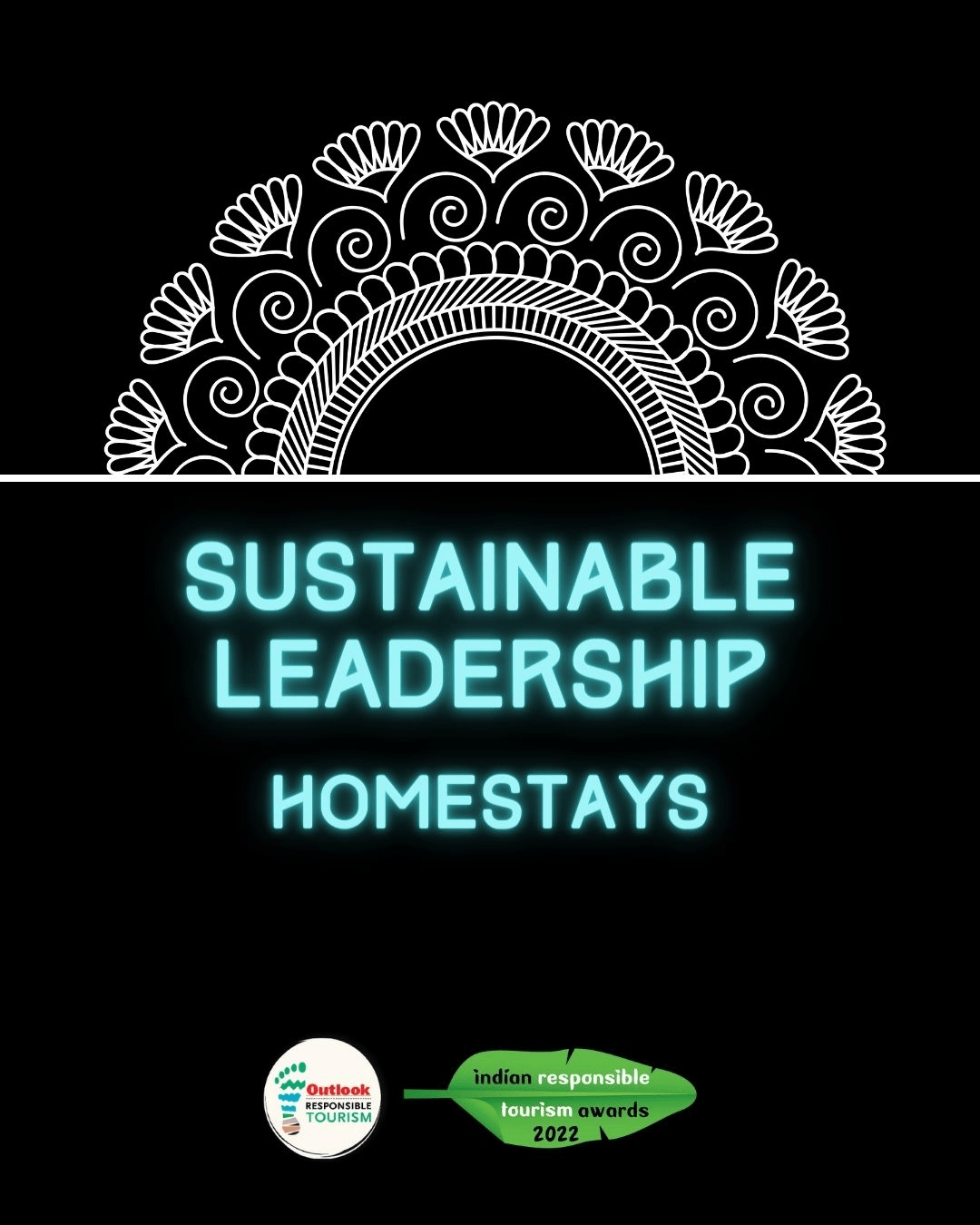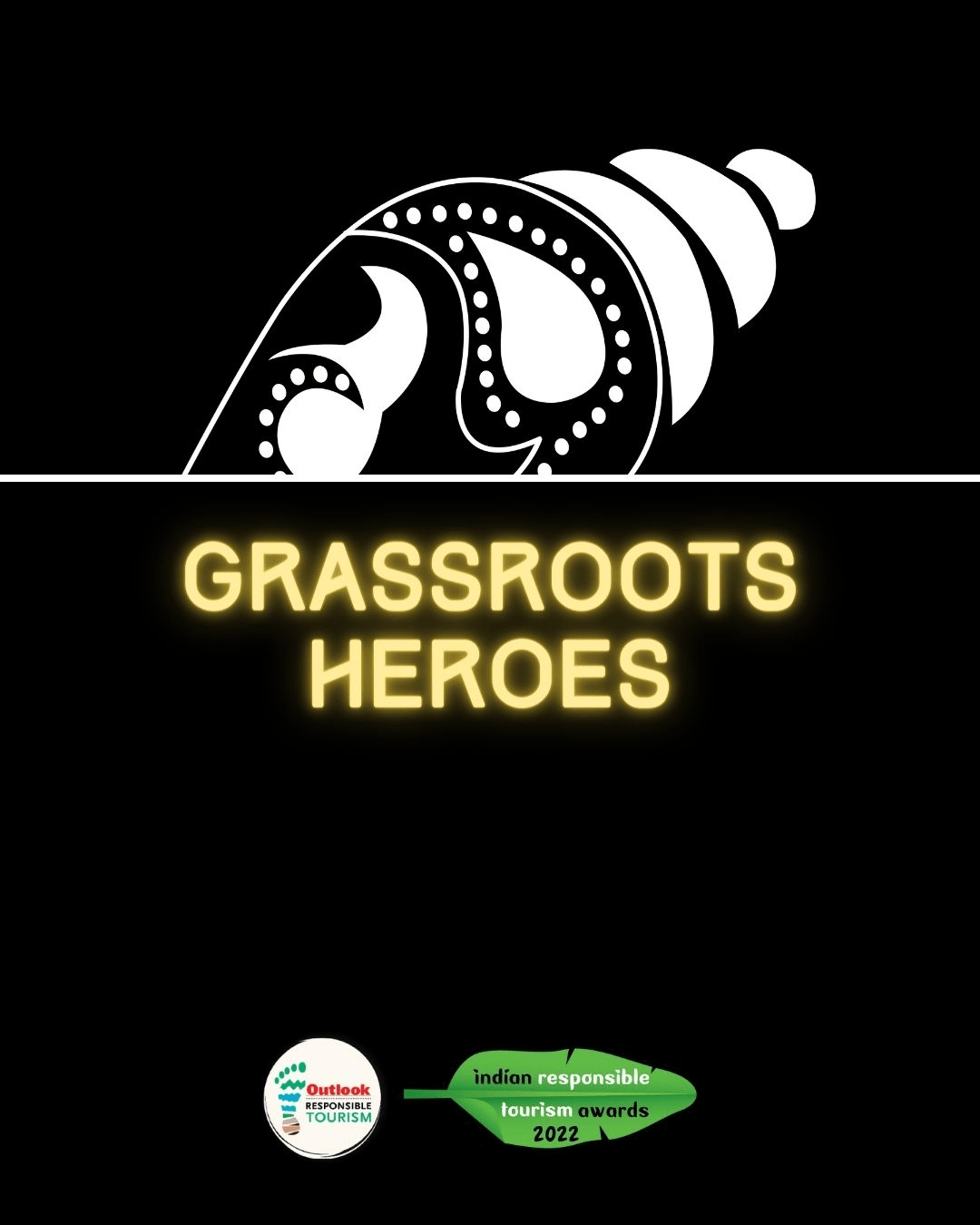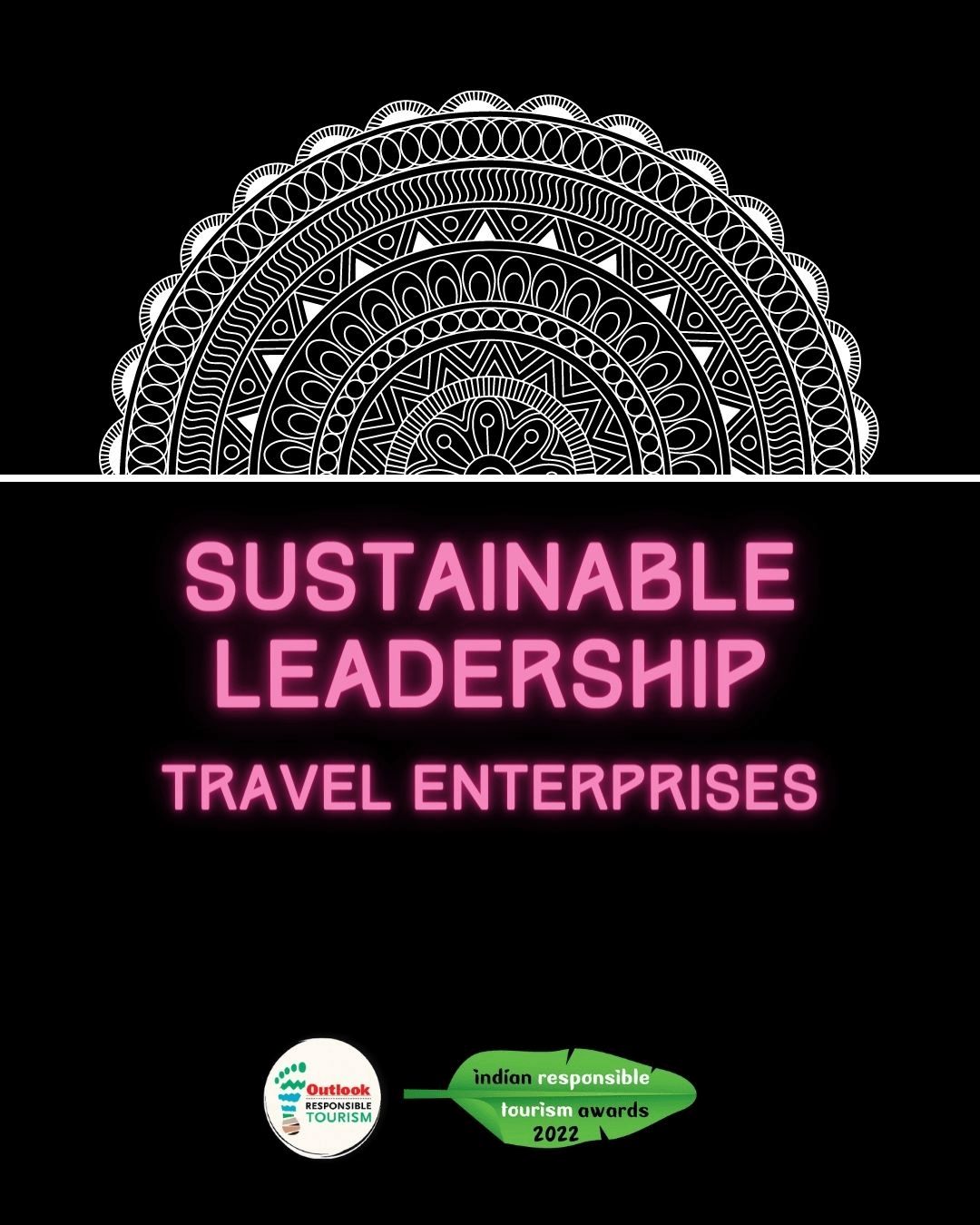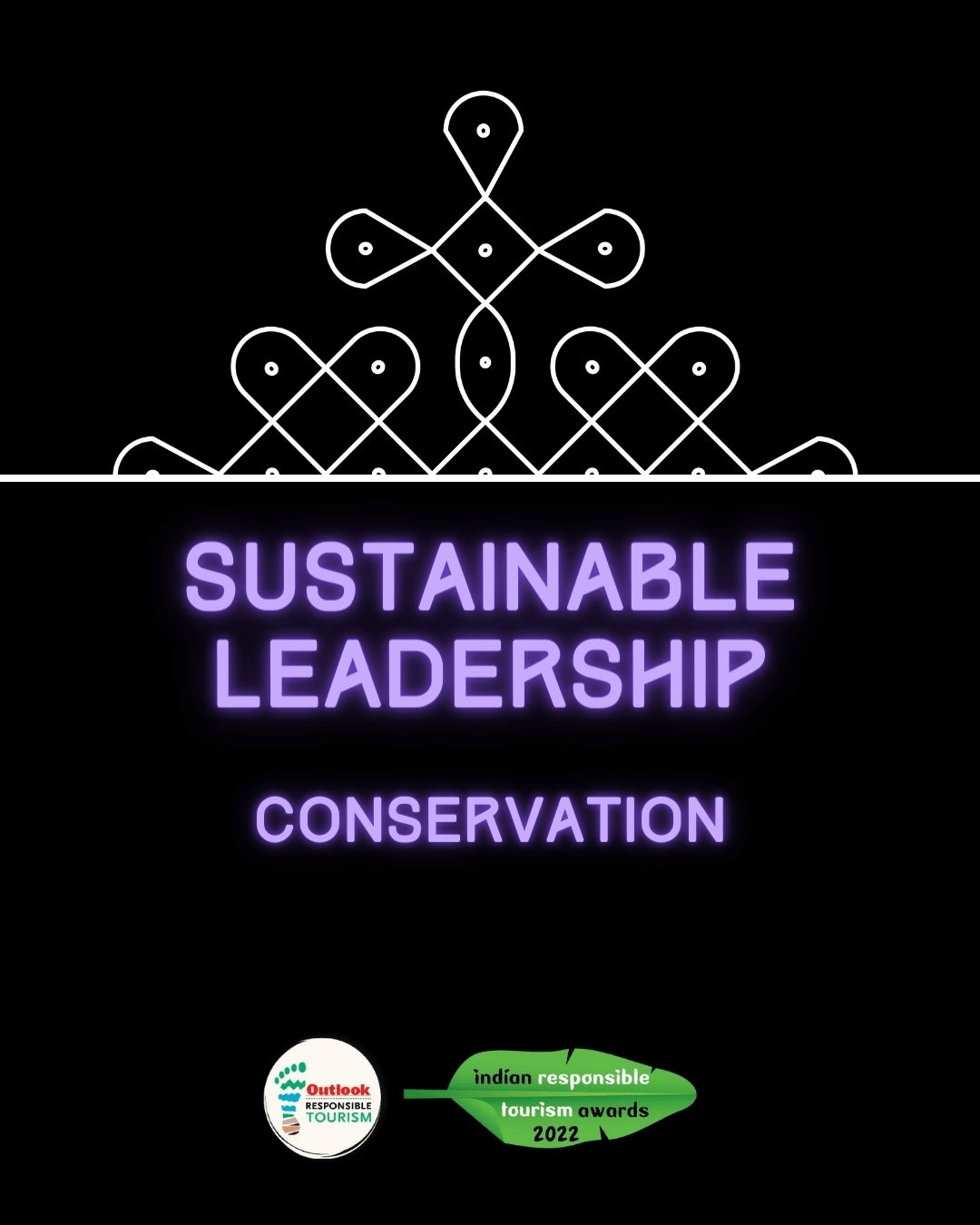
If 2020 was the year when we were battling the Covid-19 pandemic and experiencing its brutal and destructive force through the first and second phases, 2021 is the year when we have to learn to live with it, as Covid-19 reaches its endemic phase.
With vaccinations picking up pace and clear protocols in place, the Tourism industry is showing clear signs of revival, albeit slowly, but surely. In 2020 we celebrated the courage, kindness and sense of community of the pathbreakers in our industry, who battled against seemingly insurmountable odds to reinforce the status of tourism as a force for good.
In IRTA 2021-2022, we will celebrate the individuals and organisations who are leading the restart of tourism by re-imagining their business, infusing technology and innovation as best practices and weaving it all together under the umbrella of sustainability.
Now in its sixth year, the Indian Responsible Tourism Awards is proud to be the flagbearer of travel that is gentle on the earth and invested in the growth and happiness of the local communities across India. And we believe our role — of celebrating and supporting pathbreakers and leaders surmounting all odds — remains as important as ever.
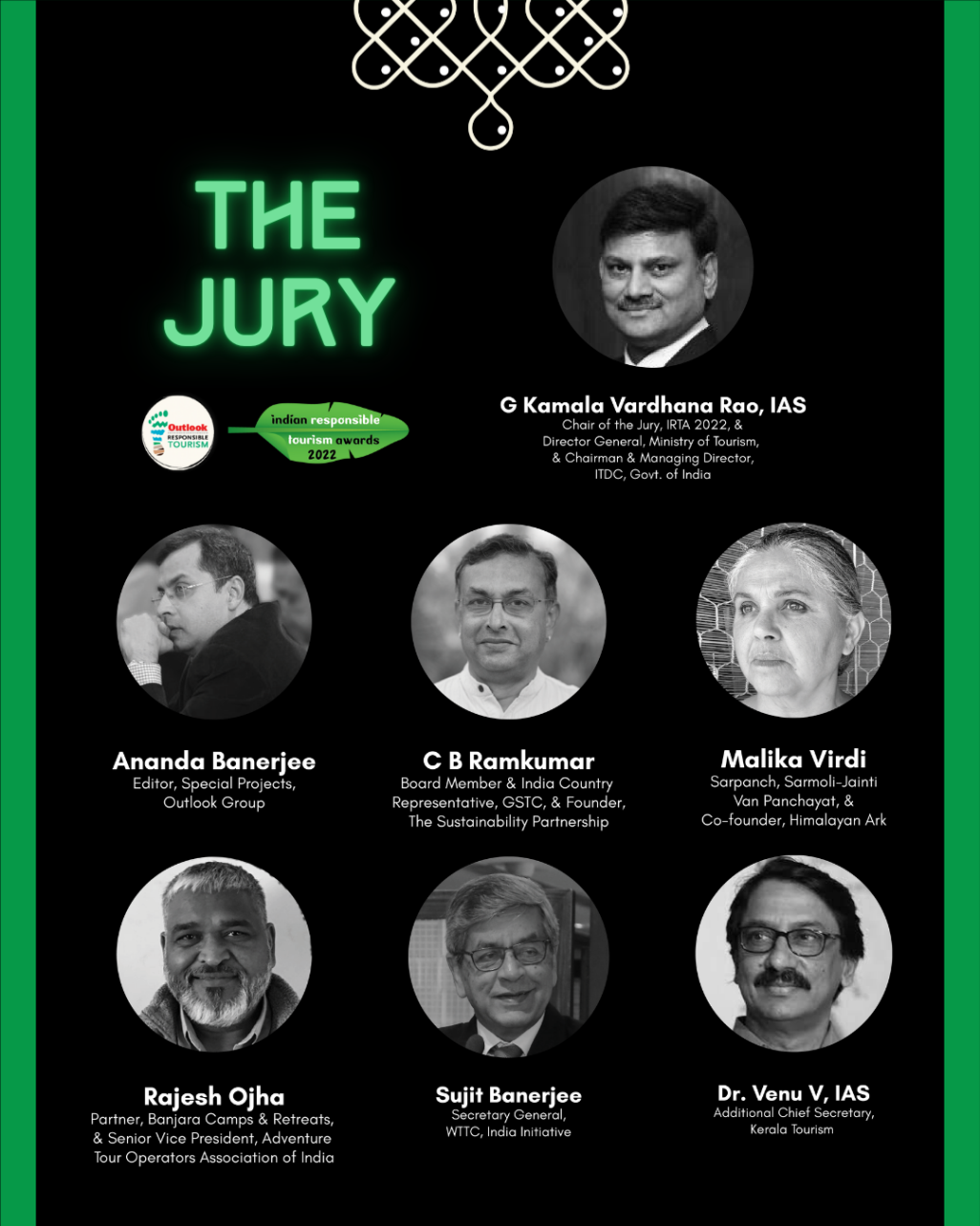

Stone Hedge Ladakh
The Winners
OVERALL
Overall Winner: Stone Hedge Ladakh
By building sustainably in Hundar in the Nubra Valley of Ladakh—which has a significant tourist footfall—and integrating critical aspects of waste and water management, architecture, supply chains, social and economic impact, Stone Hedge is leading by example in an eco-fragile landscape. A 15-room, family-run hotel, which was temporarily converted into a Covid-19 care centre, Stone Hedge also supported its staff during the health crisis by helping them run a café together. The jury collectively agreed that the hotel demonstrated ideals of sustainable leadership even in the most challenging times.
Sustainable Leadership: Homestays
GOLD: Tieedi Forest Garden, Darjeeling
Tieedi Forest Garden has a deep commitment to regenerative living. From investing in permaculture and waste management to mountain stream conservation and creating new local products like the Yukon syrup, they seize a problem and keep pushing until they find a solution. Not just for themselves and their guests, but also for the wider local community in Darjeeling.
SILVER: Salban, Kanha
Perched on the edge of a major tiger reserve, Salban—The Kanha Homestay is very deeply tied in with the local community, ecology and the wildlife, even as it engages with policymakers in the state. Built using local materials and techniques, it celebrates local produce and explores new ways to draw in the traveller into a deeper cultural connect with the landscape and the people.
One to Watch: Himalayan Tribe, Yamkeshwar
Himalayan Tribe in Yamkeshwar encourages ‘participatory living’ and reconnecting with nature. An inspiring example of reverse migration from the cities during the lockdown, it is a small, new initiative by two young men who have reclaimed an old village home in the Garhwal region, actively changing the narrative in the Himalayan tracks, where ghost villages are not uncommon.
Sustainable Leadership: Hotels
GOLD: Stone Hedge Ladakh
Located in one of the most challenging landscapes in the country, Stone Hedge is a well-designed, family-owned property that celebrates local materials and local culture, showing great fidelity to ideas of ecological and social sustainability. From using renewable energy to harvesting water from snow, it integrates eco-friendliness into every aspect of its architecture as well as the experiences it offers to its guests.
SILVER: Pugdundee Waghoba
Planted in the wilds of Tadoba, the Waghoba Eco Lodge lives up to its name. It celebrates earth-friendly architecture, brick by brick, tile by tile, and often takes it to the next level. From installing dual plumbing to employing and empowering local staff, including many women, the hotel honours its commitment to sustainability, despite the challenges it faced during the pandemic.
Sustainable Leadership: Travel Enterprises
GOLD: BLive
One of the first electric vehicle (EV) tour operators in India, BLive is a start-up that has gained momentum within the first three years of hitting the road. Apart from curating experiences that are rooted in local culture, and supporting small businesses and artisans, BLive has been collaborating with government bodies and hoteliers to mainstream EVs across nine states.
SILVER: The Extra Mile
The Extra Mile is a small, boutique travel company that believes in “high emotion, low impact” experiences. Recently, they curated limited tours in Ladakh’s Changthang region to promote the Pashmina trail. The amount of detailing, the spirit of collaboration and the sensitivity towards the semi-nomadic Changpa shepherd community and the terrain set a great example for others to follow in fragile landscapes.
Ones to Watch: Camping Co.
Camping Co. is planting the seeds of sustainable overlanding and camping across the Northeast, which could be critical in the post-vaccine tourism environment. It’s repurposing self-drive vehicles and creating a network of safe camping ‘grounds’ and lodges in offbeat locations, and encouraging them to follow its responsible policies.
Sustainable Leadership: Conservation
GOLD: Dakshin Foundation
Dakshin Foundation is among the few organisations that are actively engaging with multiple issues faced by the local communities and the environment along the vast coastline of India. The Foundation has made a significant, measurable impact in terms of coastal conservation, sustainable development and livelihood generation, resource management and social justice, which is critical in the context of climate change.
GOLD: Forest Post
Started by an agroforestry expert and an ecologist, Forest Post collaborates with and empowers indigenous forest-dependent communities in Kerala’s Western Ghats to reduce the pressure on resources, while harvesting and promoting forest produce sustainably. Their work is in sync with global efforts to celebrate the wisdom and role of communities in the conservation of biodiversity.
Ones to Watch: Technology for Wildlife Foundation
A young organization, the Technology for Wildlife Foundation has been showing the way to adapt and harness the power of new technologies for conservation, and by extension, managing destinations and ecological fragile landscapes. They rely on robots, geospatial analysis, artificial intelligence and AR/VR to create scalable, open source solutions, and help smaller organisations understand and visualize data well.
Ones to Watch: Earthling First
Although it’s a young initiative, Earthling First has already made a small, yet significant impact in the Jalori Pass area of Himachal Pradesh. By promoting the principles of a circular economy, and actively engaging local businesses, communities and travellers, it has created a waste management culture that has fundamentally altered the tourism ecosystem in the area.
Pathfinders
GOLD: Pradeep Murthy
Widely acknowledged as a pioneer in adventure travel in North Kerala, the founder of MuddyBoots Vacations, Pradeep Murthy, put popular destinations such as Wayanad on the active tourism map, and offered activities like zip lining and kayaking to a completely new set of travellers. Working closely with local and public stakeholders, he inspired a culture of professionalism, while opening up new places, introducing communities to tourism, and making sure that it remained sustainable, scientific, and safe.
SILVER: Moirangthem Loiya Ngamba
Founder of the Wildlife & Habitat Protection Society (WAHPS) in Manipur, Moirangthem Loiya Ngamba has always led by example. Not only has he rewilded an entire forest in the Maru Langol Hill Range in the northern reaches of the Imphal Valley over two decades, and inspired others to join him on his journey, but Moirangthem has also lived on the hill called Spring of Life for six long years to study the habitat and make sure that the denuded landscape is restored with care.
SILVER: Oken Tayeng
Founder of Abor Country Travels & Expedition, Oken Tayeng chose to build an active tourism ecosystem in his home state of Arunachal Pradesh and later, across the Northeast, long before it was even considered ‘the last frontier of tourism in India’. Opening up areas that created new opportunities for both local communities and travellers, he has been mindful of the impact of tourism on the ecological and social landscape of the region.
Grassroots Heroes
GOLD: Limalenden Longkumer
For two long decades, Limalenden Longkumer has been leading afforestation, river restoration, waste management and responsible tourism initiatives — often without any financial support — in the Mokokchung region of northwest Nagaland, home to the Ao Naga people. A journalist by training, Longkumer has recently launched Mokokchung Times, ‘Nagaland’s first hyperlocal English daily’, even as he continues to lead the Mopungchuket Community Tourism Society (MCTS).
SILVER: Tsewang Dorje
Raised on the banks of the Pangong Tso in a village called Maan, which still relies on a single V Sat phone, Tsewang Dorje has blazed many a trail in the last few years. A key local team member of Global Himalayan Expedition (GHE) in Ladakh, Dorje has not only helped generate sustainable livelihoods by setting up homestays and supporting local entrepreneurs in his own village, but also in several other remote rural areas. In Maan, he’s also part of a community-led astrotourism project.
SILVER: Shakeel Rizvi
Shakeel Rizvi is more than just another tour operator and homestay owner. He’s a man on a mission. Not only has he helped build an entire tourism ecosystem in the heart of India’s red corridor in Bastar, Chhattisgarh, but he has also envisioned a future where people- and planet-friendly tourism can help arrest migration and create livelihoods with dignity.
Ones to Watch: Santosh Alamkode
Founder of the Sopanam School of Panchvadyam in Malappuram, Santosh Alankode is a fourth-generation percussionist who has showed incredible enterprise by helping fellow musicians, including over 30 teachers and 800 students, tide over the Covid-19 crisis by making traditional instruments. During this time, he also embarked on a remarkable journey of documenting the history of percussion in Kerala over the last 400 years.
Ones to Watch: Ones to watch: Kuldip Gadhvi
Kuldip Gadhvi, founder of Kutch Adventures, dreamt of making the harsh desert country a beautiful, responsible destination, even when the world was crumbling around him. Starting as an 18-year-old tour guide after the 2001 earthquake in Bhuj, Gadhvi actively sought the custom of travellers who would appreciate the microcultures of his land and people, when it wasn’t a common practice. He continues to do so even today.


